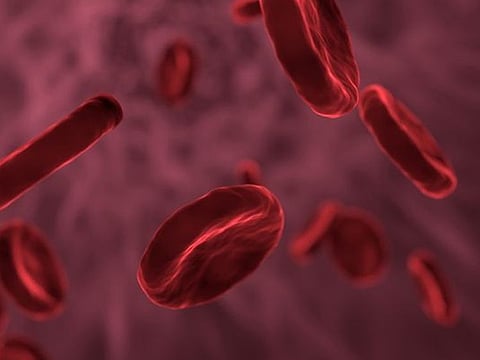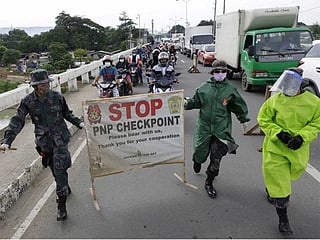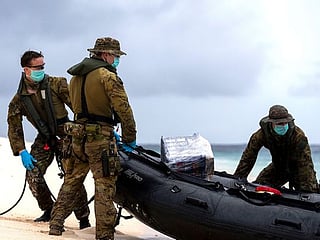UAE launches new initiative with focus on reducing incidence of lung, ovarian and breast cancers
Emirates Oncololgy Society joins hands with AstraZeneca to reduce cancer deaths in UAE

Dubai: With the incidence of over 4500 cancer cases in the UAE every year and the resolve of the UAE government to reduce fatalaties due to cancer by 18 per cent, in 2021, the Emirates Oncology Society (EOS) has stepped up its efforts to educate patients and doctors through regular patient summits which will start this month.
Focussing on reduction of incidence of lung, ovarian and breast cancers, EOS has signed a collabroation with AstraZeneca, a leading global pharamceutical company, The collaboration under the banner ‘United against cancer’ will launch a campagin for awareness, education, mass screening, early detection and treatment to reduce fatalities and increase possibilities of cure.
Also Read: What is the link between cancer and sugar?
Speaking to Gulf News, Dr Humaid Al Shamsi, President of EOS, said: “To reduce fatalities and actually get cancer patients into remission, it is important to encourage mass screenings, early detection and early treatment. When mass screenings happen and cancer are detected in the early states, there is a great opportunity or remission and cures thereby increasing life expectancy.”

By working with AstraZeneca we want to educate the average patient, hold a patient summit and educate the health practitioners. In addition, we intend to collate clinical data on local cancer prevalence and epidemiology.”
Focusing on early detection and treatment
The collaboration will aim to work at a shift in policy to provide better insurance coverage for approved cancer screenings and ensure affordability of the treatment. It will also ensure awareness programmes are in tune with the educational, religious and cultural diversity of the UAE’s multinational population.
Peter Raouf, head of oncology at AstraZeneca added: “One of the chief reasons for mortality in cancer was delay in diagnosis and treatment protocol. Our efforts will bridge the gap between patients, oncologists and hospitals and enable them both to make better informed decisions. Our collaboration will also help empower the health care sector to explore policy recommendations to increase the number of people who undergo screenings and, crucially, to improve the referral process and support available for those who are positively diagnosed.”

Patient summits and how they will work
One of the key results of the collaboration will be the patient summits, the first of it will be held in August 2020. These summits will work as an advocacy initiative where doctors will get an opportunity to hear directly from patients of lung, breast and ovarian cancers. The summits will focus on the often overlooked emotional burden of the disease, with the aim of allowing the parties to establish a needs based support programme to address ways of improving cancer patients’ day-to-day quality of life.
By 2040 UAE will have 30 per cent increase in malignant cancers
According to the latest data published in the Gulf Journal of Oncology, there are 4,500 cases of cancer per year in the UAE and the top cancers among both UAE nationals and expatriates are breast, colorectal, thyroid and prostate cancers. The Global Cancer Observatory (GLOBOCAN) 2018 has predicted that by 2040 UAE would have a 30 per cent increase in malignant cancers.
Emphasis on evidence-based cancer publications based on local population
Dr Al Shamsi added that the collaboration would not only support multi-dimensional care for cancer patients in the UAE but also work towards creating evidence-based publication particularly in the fields of lung, breast and ovarian cancer where local information is lacking. The publications will take into account the genetic and clinic-pathological variation between western and Arab populations, which has a critical impact on how patients respond to therapy.
Through its collaboration with AstraZeneca, the EOS aims to advance publication of local cancer epidemiology and clinical data, as well as understand the prevalence of certain genetic mutations such as BRCA genes (associated with some breast and ovarian cancers) and EGFR mutations (associated with certain subtypes of lung cancer), in order to further address gaps in the management of these devastating diseases. This data from local cancer centres across the UAE will support the clinical community to enable oncologists and cancer patients to make better informed treatment decisions.
Sign up for the Daily Briefing
Get the latest news and updates straight to your inbox









